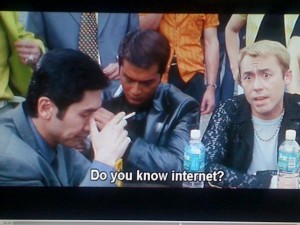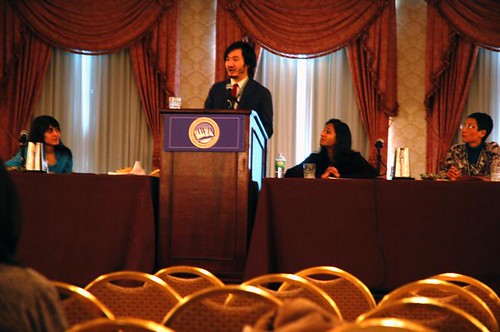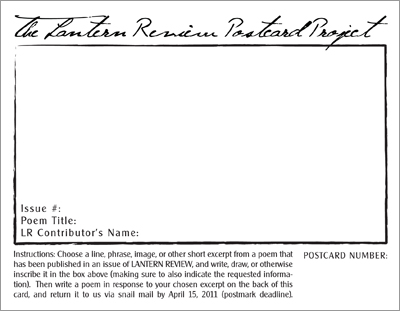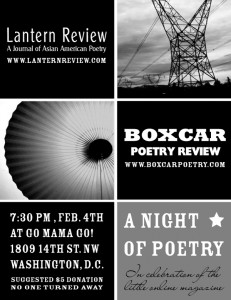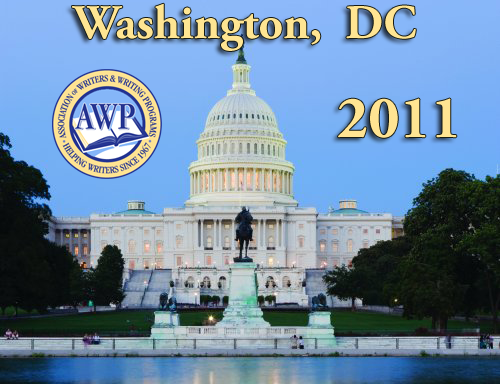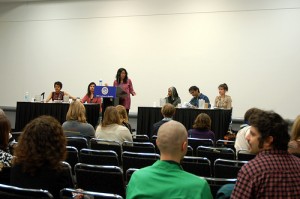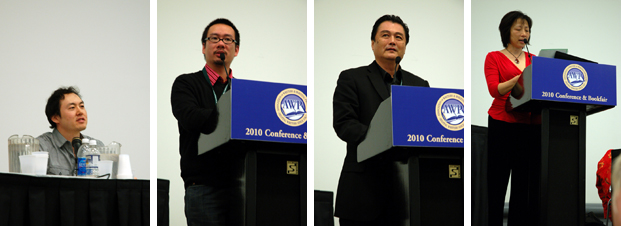
AWP 2016 is just around the corner (it’s hard to believe that it’s already next week!), and the Lantern Review team is hard at work preparing to dive into the fray. We’ve written in the past about how important it is for writers of color to optimize community-building opportunities at AWP and conferences like it. That’s easy enough to do if you’re somewhat established and have contacts within an existing network. But for emerging writers, networking at big conferences can sometimes feel anonymous and bewildering. During my first writing conference, I had no idea how to begin connecting with people. What was the appropriate way to strike up a conversation with a poet after a reading? Was I supposed to bring copies of my CV to the bookfair with me? I ended up figuring out most of these things by trial and error. (For the record, there’s no need for CVs at the bookfair!)
Since then, I (and we, as a team here at Lantern Review) have been to many more conferences. We’ve been the editors standing behind the bookfair table talking to first-year MFA students. We’ve been the panelists nodding at shy attendees who’ve worked up the courage to ask us questions. And over the years, we’ve learned that with a little bit of strategic preparation, it’s possible for an emerging writer without many contacts to make a great impression and establish lasting connections at an event of even AWP’s scale.
Here are three simple things that we think every writer should do before a conference in order to lay the groundwork for effective networking:
1. Establish an internet presence.
You’ll meet a lot of people at any conference, but in order to facilitate follow-up, you’ll need to provide your new contacts with a place to land if they look you up online. Of course, not everyone is into social media (and we like what Molly Gaudry has to say about not trying to fake your enthusiasm for it). But even if you can’t tell a hashtag from a Twitter handle, we highly recommend that you create some way for people to search for and find you on the internet after the conference has ended. At the most basic level, we suggest using a free service to set up a simple website or blog for yourself. We know lots of writers who have made great use of sites like Wix and Tumblr, but our personal favorite is WordPress.com, which offers a wide selection of free design templates; employs an easy-to-use interface that doesn’t require coding knowledge; and comes with a powerful website stats plugin that lets you see who is visiting your site and how they’re finding it. However you choose to do it, the following two tips are key: keep the focus of an author website on yourself rather than on a specific book or project of yours (this will give the site greater longevity), and make sure that the full name under which you publish your creative work is in your URL, profile, and/or username (otherwise, readers and editors may have difficulty finding you).
If you already have your own website and/or active social media accounts, the few days before a conference are a good time to make sure that everything there is in order: make sure your most recent publications are listed on your portfolio page; update your author bio and photograph; check that your list of upcoming events is current. After a conference, when you’re no longer interacting with other writers face to face, your web presence is everything, so doing the necessary maintenance work on the front end will enable you to put your best foot forward when you step onto the convention floor.
Continue reading “How to Prepare for a Conference: Three Simple Tips for Writers”
